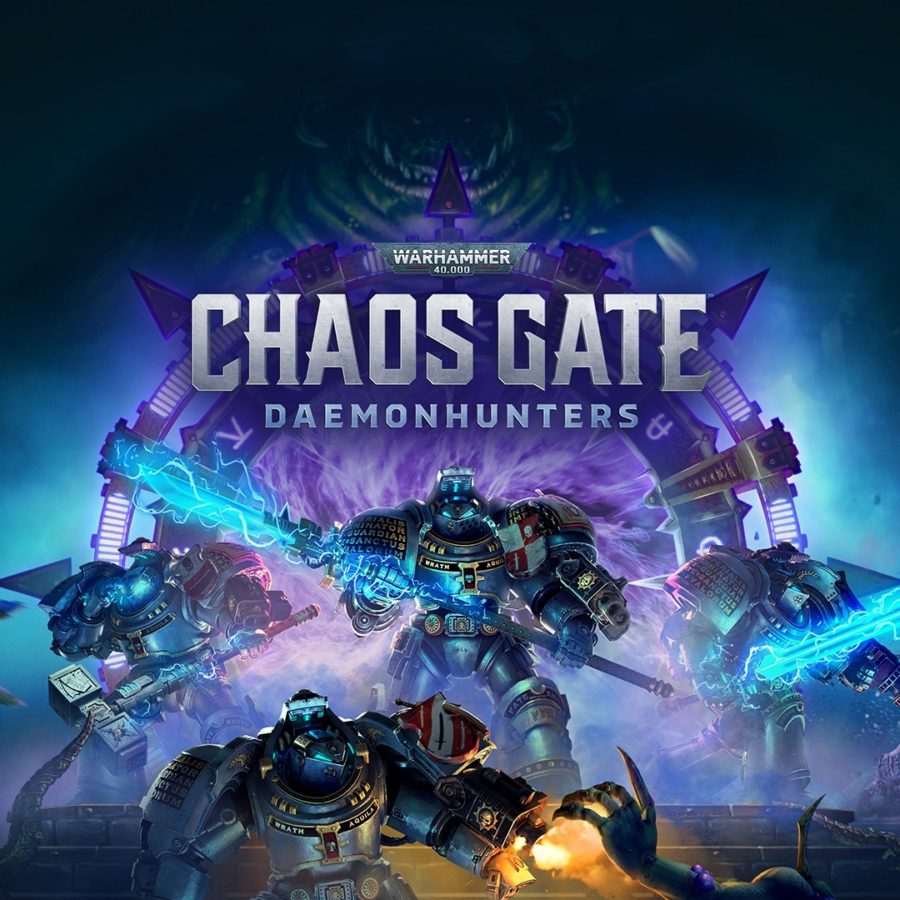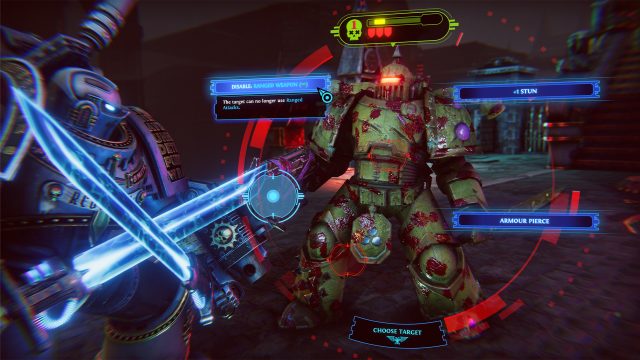
It has a terrible title. I know. As a recent convert to the Warhammer universe thanks to a combination of national lockdowns and ample free time, I was bracing myself for a game using the license that was a bit mediocre. What a surprise then, that Chaos Gate is absolutely brilliant.
Ok, so let’s address the space elephant in the room. It’s a shameless copy of XCOM. But then, it’s a top-down/isometric turn-based game, controlling squads with a shipbuilding and character narrative-driven metagame, so of course, it is going to be compared to XCOM (Hmm, ok that still sounds very much exactly like XCOM). No matter, who cares. Chaos Gate is excellent.
Full disclosure – I wasn’t the biggest fan of XCOM. I can’t really describe why, but I liked Gears Tactics a lot more. And so far, I’m liking Chaos Gate even more. Maybe it’s the Warhammer guise. For those not in the know, the Warhammer lore is incredibly sparse and detailed. Set in the far future, hardcore super-soldiers known as Space Marines battle threats across the universe fueled by the Gods of Chaos. Everything is bleak and grim. Chaos Gate leans into this fully, with polished cutscenes and some incredible voice-acting against some (not quite so good) animation.
Set aboard a struggling ship in dire need of repairs, an Inquisitor shows up and orders you to investigate a nearby disturbance. Through the rule of the Emperor, the loyal Grey Knights must obey, and your captain is brutally murdered by a huge monster on your first expedition which discovers a plague called the Bloom is taking over the galaxy. Stepping up as Commander, you must take the leak on stamping out the Bloom, whilst keeping the Inquisitor sweet, as well as the Grand Master checking in from afar, and the Captain of the Chapter (as well as a tech-priest on board who is responsible for your upgrades). Decisions through dialogue trees are important here, as they can impact what happens to missions and availability over time, as the threat increases which will impact future missions – through either difficulty, availability or impacts on your squad.

This ship meta-management will be familiar to XCOM fans, but 40K lore is immensely strong and seeing the impact of your decisions is fascinating. The Chapter Captain, Ectar will at points want you to observe the traditions of the Grey Knights, such as Space Marine duels. This is great for the morale of your team but bad for the Inquisitor who will want to research and understand what’s going on. This dynamic makes you really think about your decisions and question what you’re doing and the impacts it may have.
On the ground, where the missions take place is similarly deep. With a squad of four, whom you’ve selected and equipped with a variety of skills and weaponry, you have to assault the battlefield to complete an objective or objectives. Each team member has a number of action points which can be used to move or attack. A cover mechanic is in play, and an overwatch system also exists to cover an area in case enemies encroach, which the AI does seem pretty keen on using.
So XCOM then. But here’s the twist – there’s loads of stuff that it adds or changes from XCOM… for the better?! For a start, RNG damage rolls are mostly gone. I hated that. Space Marines don’t miss. And the Grey Knight lore means that abilities get wild. Each Knight has their own class and can use abilities which do things like self-heal armour or replenish their own Action Points. There are masses of upgrades for weapons and attributes and abilities, you can really forge your own playstyle or just experiment. Add in status effects like fire damage and destruction to the environments and terrain which open up tactical options, and there’s some huge depth here.
Space Marines have the option of using psychic abilities too, but these can enhance the enemy as you use up your Willpower to cast them. You can craft special abilities through research for aid on the battlefield too to get you out of a jam. If a Space Marine goes down, you have a few chances to get them back, but they may need some bionic upgrades to get them back to fighting fit.
There are masses of systems at play, and after Gears Tactics (which is a much simpler version of the XCOM formula) it took a bit of getting used to as the off-the-field element is as important as the battles themselves. Whilst not true to the Warhammer ruleset (which is mind-bending) the concept of turn-based strategy is executed so well in this game, Warhammer fan or not, this is a must-play for anyone interested in turn-based strategy games.
Reviewed on PC


Leave a Reply